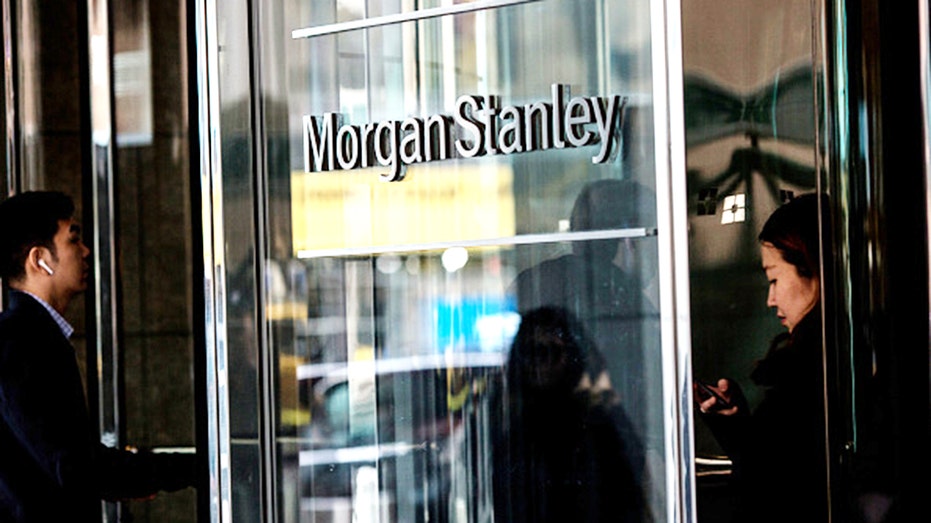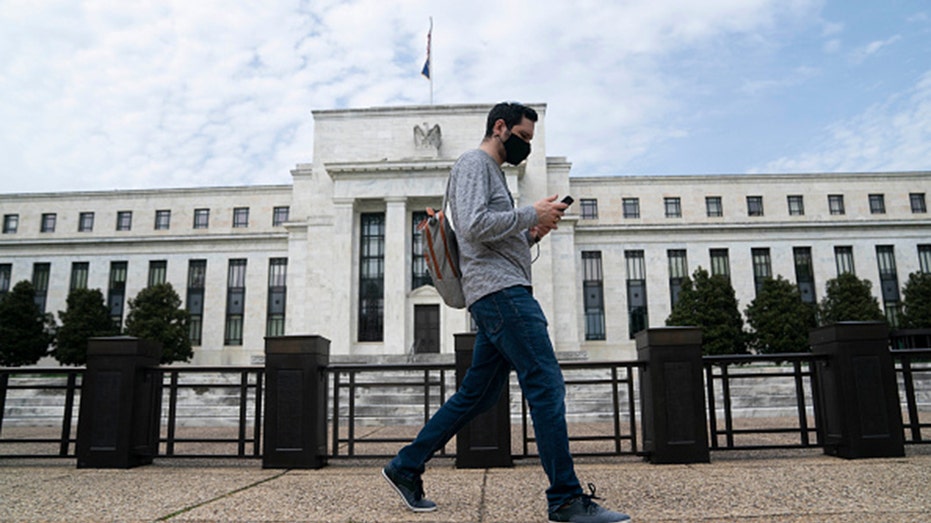Morgan Stanley warns ingredients for a global recession are 'on the table'
Inflation is ‘killing’ the consumer: Expert
Kaltbaum Capital Management Gary Kaltbaum discusses the markets, Federal Reserve and inflation.
With inflation at the highest level in 40 years and the Federal Reserve taking increasingly aggressive action to cool consumer demand and prices, the risk of a global recession is on the rise, according to Morgan Stanley economists.
In a Monday analyst note, the bank strategists – led by Seth Carpenter – said they have dramatically reduced their global growth outlook over the past three months as inflationary pressures have climbed and fears of a global recession have grown.
HOW THE FEDERAL RESERVE MISSED THE MARK ON SURGING INFLATION
"We live in the most chaotic, hard-to-predict macroeconomic times in decades," Carpenter wrote in the note. "The ingredients for a global recession are on the table."
People enter the Morgan Stanley headquarters building in New York, U.S., on Wednesday, April 11, 2018. (Photographer: Christopher Lee/Bloomberg via Getty Images / Getty Images) Economic growth in the U.S. is already slowing: The Bureau of Labor Statistics reported earlier this month that gross domestic product unexpectedly shrank in the first quarter of the year, marking the worst performance since the spring of 2020, when the economy was still deep in the throes of the COVID-induced recession. Still, a recession is not the base outlook for the Morgan Stanley strategists, who noted that business investment and consumer spending remained strong in the first three months of the year. In order for there to be a global recession, the economists said there needs to be a scenario where all energy imports from Russia, including natural gas, are cut off abruptly. And while the Fed is taking action to tame inflation by raising interest rates at the fastest pace in decades, the Morgan Stanley economists predicted that policymakers would "reverse course" at the first sign of doing too much. "We would need a European contraction to hit the US economy after enough frontloaded policy tightening is in train to trigger a recession," Carpenter said. "The alignment of those unlucky stars is possible, hence the rising risk, but it is not something I would count on." A man wearing a mask walks past the U.S. Federal Reserve building in Washington D.C., the United States, on April 29, 2020. ((Xinhua/Liu Jie via Getty Images) / Getty Images) The analyst note comes less than one week after the Fed voted unanimously to increase the interbank lending rate by a half-basis point for the first time in two decades as it ratchets up the fight to combat inflation. Chairman Jerome Powell all but promised two more similarly sized hikes at the Fed's coming meetings in June and July as policymakers seek to "expeditiously" get overnight borrowing costs to a neutral range of 2.25% to 2.5%. Current market pricing shows that traders expect the rate to rise to 3.0% and 3.25% by the end of the year, according to CME Group data, which tracks trading. That would mean the Fed raises rates at every meeting for the rest of the year, including three half-point hikes. The concern now is that the Fed moves too quickly to reduce consumer demand and accidentally drags the economy into a downturn. Bank of America, Deutsche Bank and Fannie Mae are among the Wall Street firms predicting a recession in the next two years, largely because of the monetary policy tightening. In this Jan. 29, 2020 photo, Federal Reserve Chair Jerome Powell pauses during a news conference in Washington. (AP Photo/Manuel Balce Ceneta / AP Newsroom) Wall Street tumbled toward its lowest point in more than a year on Monday amid concerns about rising interest rates, as well as a slowdown in China. Even though there may not be a recession looming on the horizon, Carpenter said that markets will still need to confront the possibility of a downturn. GET FOX BUSINESS ON THE GO BY CLICKING HERE "Higher rates and falling growth are never good for valuations," he said. "Avoiding a recession is our base case, but markets will have to confront the rising probability of one regardless." Powell has acknowledged there could be some "pain associated" with reducing inflation and curbing demand, but pushed back against the notion of an impending recession, identifying the labor market and strong consumer spending as bright spots in the economy. "It’s a strong economy," he said. "Nothing about it suggests it’s close to or vulnerable to a recession." Source: Read Full Article



